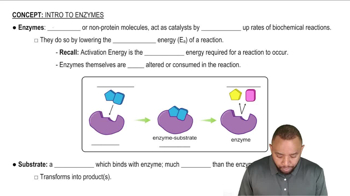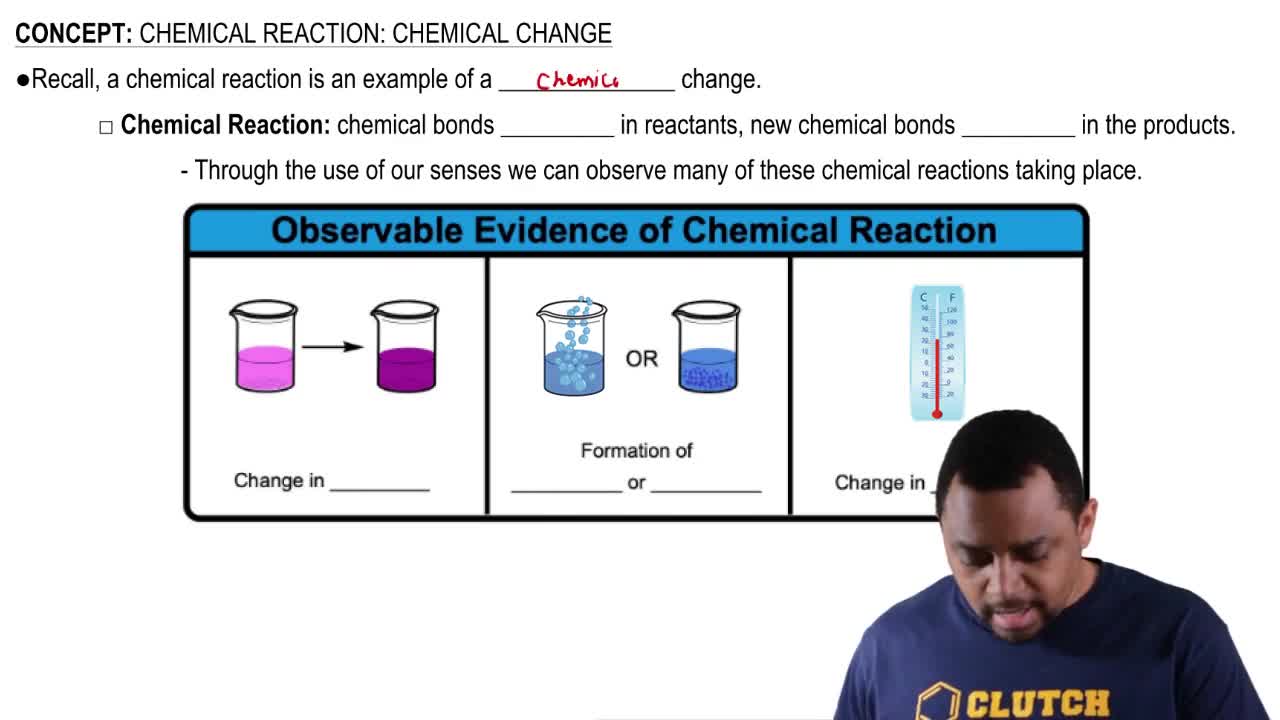Match the terms (2) enzyme with the following descriptions:
a. has a tertiary structure that recognizes the substrate
b. is the combination of an enzyme with the substrate
c. has a structure that fits the active site of an enzyme
 Verified step by step guidance
Verified step by step guidance Verified video answer for a similar problem:
Verified video answer for a similar problem:



 2:14m
2:14mMaster Intro to Enzymes Concept 1 with a bite sized video explanation from Jules
Start learning